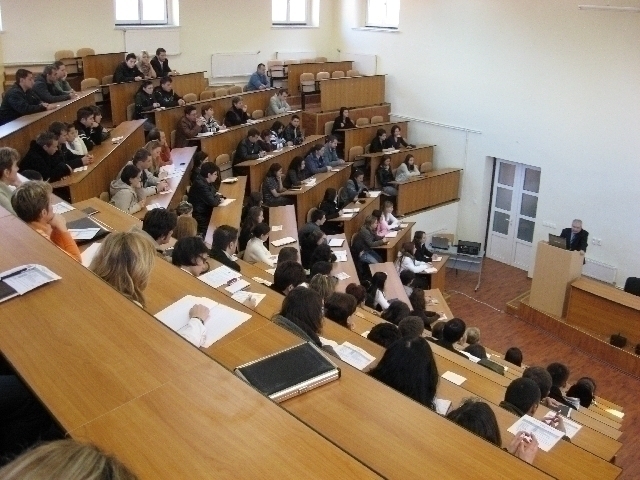The beginning of a new academic year
The new academic year has begun with the usual expectations, plans for the future and misgivings.

Steliu Lambru, 07.10.2015, 13:29
The new academic year has begun with the usual expectations, plans for the future and misgivings. Hard-working generations that are in the early days of their intellectual life and career must cope with new changes, the introduction of new demands and the need to customizing their training to the labor market.
So the students’ main concern is related to what is needed on the labor market, and their choice of the field of academic study greatly depends on the very labor market. And it is not only the younger generations that take the market into account, but also the universities, but their adaptation to the market is a little bit slower.
Gabriela Jitaru is the coordinator of projects run by the Executive Unit for the Financing of Higher Education, Research, Development and Innovation. We asked her to explain what the connection is between the academic system and the labor market.
Gabriela Jitaru: ”There is no direct connection, I’d say, since the education system must prepare students who, after graduation, can be integrated on the labor market. Another key role of the education system is to prepare the graduates for facing the challenges of society and to help them in their personal development. Which means that there needs to be a close connection in relation to the academic curriculum. However the curriculum should be flexible, since today’s labor market itself is very flexible and is developing and changing very fast. The education market, if we may call it like that, at higher education level, is not developing that fast. At the level of the Executive Unit for the Financing of Higher Education, Research, Development and Innovation several analyses and studies have been made nationwide that monitored the insertion of the graduates on the labor market for several generations. Perception is different. Those who graduated 5 years ago have a more flexible perception, in the sense that they have a much clearer perception of the competences they needed to integrate on the labor market. Results showed that people who graduated 5 years before the survey was conducted believe there is a 78% connection between what they studied and their job requirements while those who graduated 1 year before the survey say the connection is of 70%. “
There has been talk about a social model of job, with a view to adapting education to market demands. Here is Gabriela Jitaru again, with details on such a model: ”If we were to define a social model of a job, that would be a job without borders both in terms of the location where the job is performed and of the flexibility of competences. In a way, today’s model of job gives the opportunity to many graduates to get hired, although they did not train for that job specifically, but they did acquire the needed competences. A possible answer to this question might be a survey showing that the labour market doesn’t offer jobs in accordance with the graduates’ degree of training. Graduates who took part in the survey pointed out that 30% of them are overqualified for their jobs.”
Is the labour market becoming more conservative? Here is Gabriela Jitaru: “Apparently the labour market is not necessarily very rigid, it is actually pretty dynamic. Sometimes it has very specific demands, which education experts believe the demands shouldn’t be covered by the education curriculum because general competences are very important just like practical training. The survey has revealed that, due to the present crisis, those who graduated in 2009 and 2010 need a longer period to find the right jobs, almost double the time needed by the graduates of 2005 and 2006. But we cannot say that employment has been significantly altered or influenced by the crisis. “
The European Commission is trying to provide assistance to the young people who are trying to find a decent job. ‘The Youth Guarantee’ programme is part of this assistance, which sometimes happens not to keep pace with the labour market dynamics.
Gabriela Jitaru is back at the microphone: “I don’t think the programme will be very much adjusted. This is a European Commission programme and it is up to them to decide whether to adjust it or not. If we refer to the ‘Youth Guarantee’, it will benefit young people with ages between 16 and 25. Other programmes must be directed to employers, and the probability of such a project to have an impact and effective results is higher, because the employer is encouraged to hire young people within the 16-25 age bracket, who are no longer involved in a training programme.”
Novelty and change are always ahead of institutions, and universities are no exception to the rule, being subject to institutional inertia. And those who start building a career by university studies have to face new challenges.






























